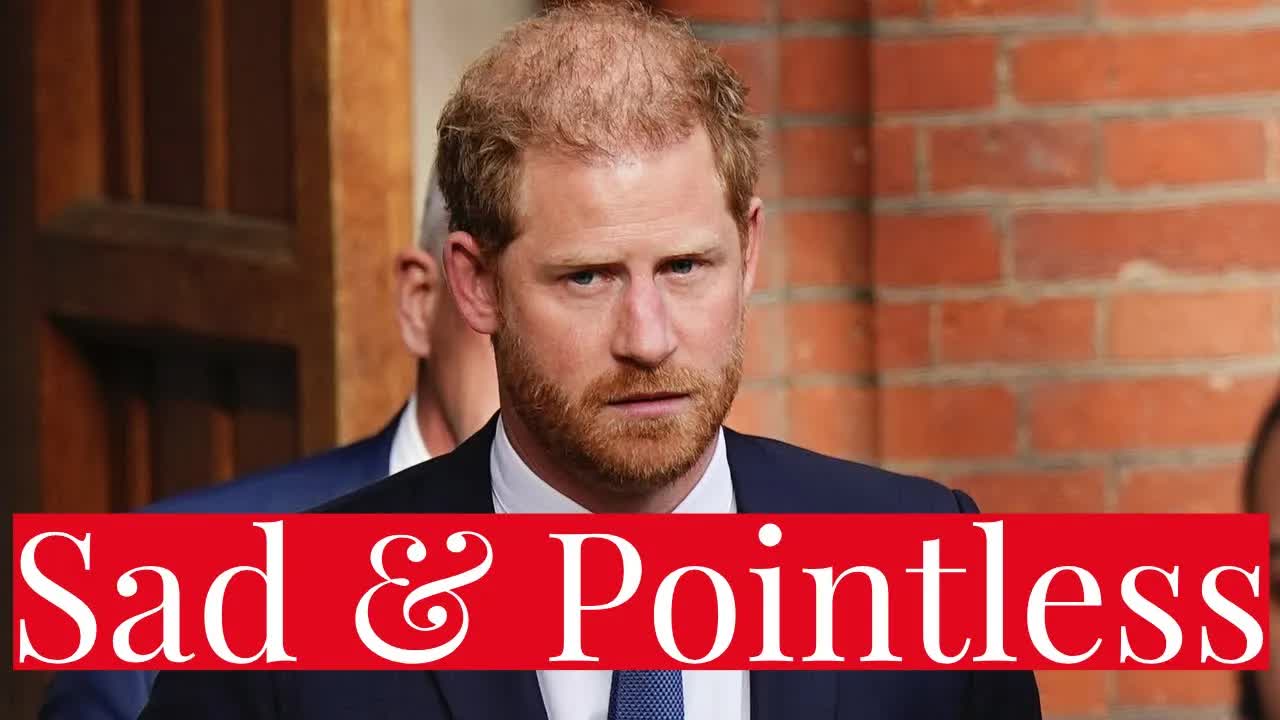Must Read
Prince Harry’s Phone Hacking Documentary: A Tale of Woe or a Cry for Attention?
Prince Harry is once again making headlines, but this time it's not just about his royal lineage or his marriage to Meghan Markle.
The Duke of Sussex has embarked on a new documentary project that revolves around his claims of phone hacking—an issue he alleges affected him over 15 years ago.
This latest venture seems to be an attempt to elicit sympathy from the public, as Harry recounts his experiences with media intrusion and the alleged hacking incidents that he insists have plagued his life.
The documentary, set to air on ITV, aims to shed light on the notorious phone hacking scandal that rocked the British tabloid industry.
Harry claims that he was a victim of this scandal on at least nine occasions and suggests that journalists even sought access to the phone records of his then-girlfriend, Chelsea Davy.
However, one must wonder: is this a genuine effort to address past grievances, or merely a ploy to keep himself in the public eye?
One glaring issue with Harry's narrative is that the phone hacking scandal essentially concluded in 2011.
Since then, advancements in technology have made such breaches increasingly difficult, if not impossible.
With modern smartphones boasting enhanced security features, the need for hacking has diminished significantly.
So, why is Harry revisiting a chapter that many believe has already closed?
It seems that Harry's ongoing battle with the media is less about actual injustices and more about his perception of them.
He appears to be positioning himself as a champion for change within the British media landscape, claiming that his legal actions could potentially alter how journalists operate.
Yet, with most parties involved in the original scandal having settled their claims, one must ask: what exactly is Harry hoping to achieve?
Complicating matters further is the revelation that Harry may have deleted crucial messages related to his case.
This raises questions about his commitment to the lawsuit and whether he genuinely seeks accountability or simply wishes to vilify the press.
It seems that rather than focusing on the broader implications of media ethics, Harry is fixated on his personal narrative and grievances.
As he prepares for this documentary, it becomes clear that Harry's motivations may not be as altruistic as he would like us to believe.
While he claims to be fighting for justice, the reality appears to be that he is primarily concerned with defending his own reputation and that of his family, particularly Meghan.
This fight against perceived media injustices seems to stem more from a desire to shield his wife from scrutiny than from a genuine quest for reform.
Harry's approach to the media has been consistently contradictory.
He often accuses journalists of being the architects of his distress while simultaneously engaging with them to promote his projects.
This duality raises eyebrows and prompts skepticism about his sincerity.
If he truly wants to change the media landscape, why does he continue to engage with the very outlets he criticizes?
The documentary features other high-profile figures, including actor Hugh Grant, who also experienced the fallout from the phone hacking scandal.
Yet, while Grant has settled his disputes, Harry appears to be stuck in a cycle of rehashing old wounds.
This begs the question: is he genuinely interested in justice, or is he simply trying to capitalize on a narrative that keeps him relevant?
Moreover, the documentary's focus on Harry's relationship with Chelsea Davy seems misplaced.
While he references their experiences, it is evident that the core of his grievances lies with his mother's legacy and his marriage to Meghan.
By framing the narrative around Davy, Harry seems to be diverting attention from the real issues at hand—his ongoing struggles with fame, family, and the media.
In a world where celebrity culture thrives on constant attention, Harry's attempts to draw sympathy through his documentary might resonate with some.
However, for many, it appears to be yet another instance of a royal seeking to manipulate public sentiment rather than confronting the complexities of his life head-on.
As the documentary approaches, the anticipation builds.
Will it offer any new insights, or will it merely serve as another chapter in Harry's ongoing saga of victimhood?
The answer remains uncertain, but one thing is clear: Harry's narrative continues to evolve, often leaving more questions than answers in its wake.
Ultimately, whether Harry's documentary will achieve its intended goals or simply reinforce existing perceptions of his character remains to be seen.
One can only hope that amid all the drama, he finds a path toward genuine healing and understanding—both for himself and those he claims to represent.








































